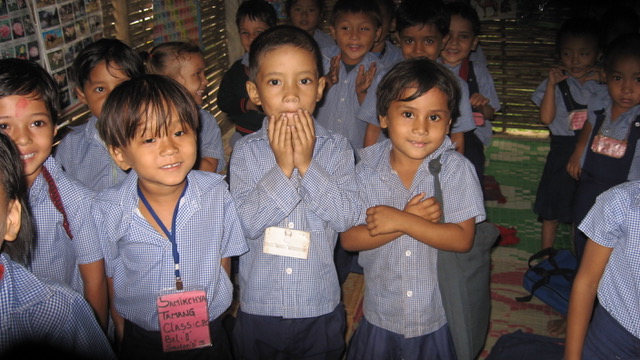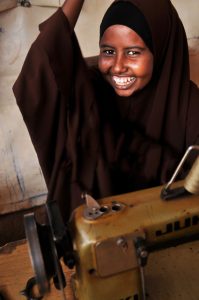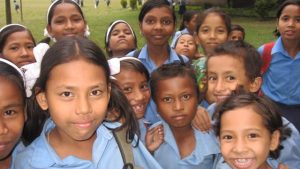Take my hand and let’s walk together

“Strengthen the weak hands, and make firm the feeble knees. Say to those who are of a fearful heart, be strong, do not fear! Here is your God. He will come with vengeance, with terrible recompense. He will come and save you.” Isaiah 35:3-4.
Having been born and raised in a country that is part of the Global South, I sometimes find myself thinking and acting in ways that still reflect the influence of colonialization. It is not due to an inferiority complex as my parents have always empowered me to pursue my dreams and push boundaries.
However, growing-up in a society that considers the Global North as the gold standard for modernity, prosperity and wealth, affects even the most forward thinking of minds.
Having worked on both sides of the world, I have observed the lingering effects of colonialization on either side. In the Global South, expatriates are often chosen over local candidates for managerial roles, not because of their experience or credentials, but because of the assumption that this person must know better. In the Global North, headquarters of corporations, not-for-profits, and even governments require their counterparts overseas to adapt and comply with their culture, norms and standards, with little appreciation for the insights and experience they bring. Few ask whether this is feasible, realistic or even sensible to do.

Sewing is one of the many skills being being taught at the Dollo refugee camp in Ethiopia. Source: M. Lovez-Villegas/ CJI
These assumptions and outdated ways of thinking continue to fracture an already divided society. We live in a polarized world where it seems you only have two options and you need to fit in either of them.
The passage from Isaiah above made me reflect on this issue of polarization, and how it impacts my faith. Is it enough to simply identify as a good Christian? What does being a Christian demand of us? What else does God expect me to do today?
Very often, we forget to put ourselves in other people’s shoes. We assume other people are just like us. We think that all our thoughts and actions that are right for us must be right for everyone else.
We forget to ask, how would our view of the world change if we were in someone else’s situation? Would we have the same opportunities as we do now? What challenges would we be facing? Would we be able to rise up to these challenges? How feeble would our knees be?
Every Christmas, we remember Jesus coming into our world. He arrived poor, born in a humble manger and surrounded by strangers from different communities, countries and kingdoms. The shepherds and the wise men were all able to recognize His Divinity despite their differences. Some were rich, others poor, but nobody cared who came from where. They were all equals, walking together seeking God.

Students at Moran Memorial School in Nepal. Source: J.Cafiso/CJ
From the Himalayans to the Andes, in refugee camps in Maban, South Sudan or in the jungles of Chiapas, Mexico, Canadian Jesuits International (CJI) supports Jesuit and community partners who work tirelessly for the greater glory of God. They transform lives through the four Universal Apostolic Preferences (UAPs) chosen by the Society of Jesus: Spiritual Exercises and discernment; walking with poor and marginalized people; journeying with youth; and caring for our common home.
As Father General Arturo Sosa SJ has said the UAPs are a call to conversion. The UAPs are an invitation to change by challenging our assumptions and deconstructing our preconceived notions of others. The UAPs give us an opportunity to be like those first witnesses of Jesus’ birth: acting as one community, building connections instead of walls, and striving for a common goal.
The work of CJI’s partners transforms lives in both the Global South and North. As supporters of their work, we can transform our own lives: we can find brothers and sisters in the poor children in the tea plantations in Darjeeling, India; we can learn from the resilience of young refugees in Ethiopia whose spirits continue to grow as they learn new skills to help them move forward.
As I think about the work that our partners continue to do in Africa, Asia and Latin America, I begin to have a much better understanding of that passage from Isaiah. By working together, we will strengthen our weak hands. By walking together, our feeble knees will bring us much further along our journey. You and I are not that different. God is with us. He is there for you and me.




Peter Bisson
Posted at 07:42h, 16 DecemberThank you very, very much Mercedes!